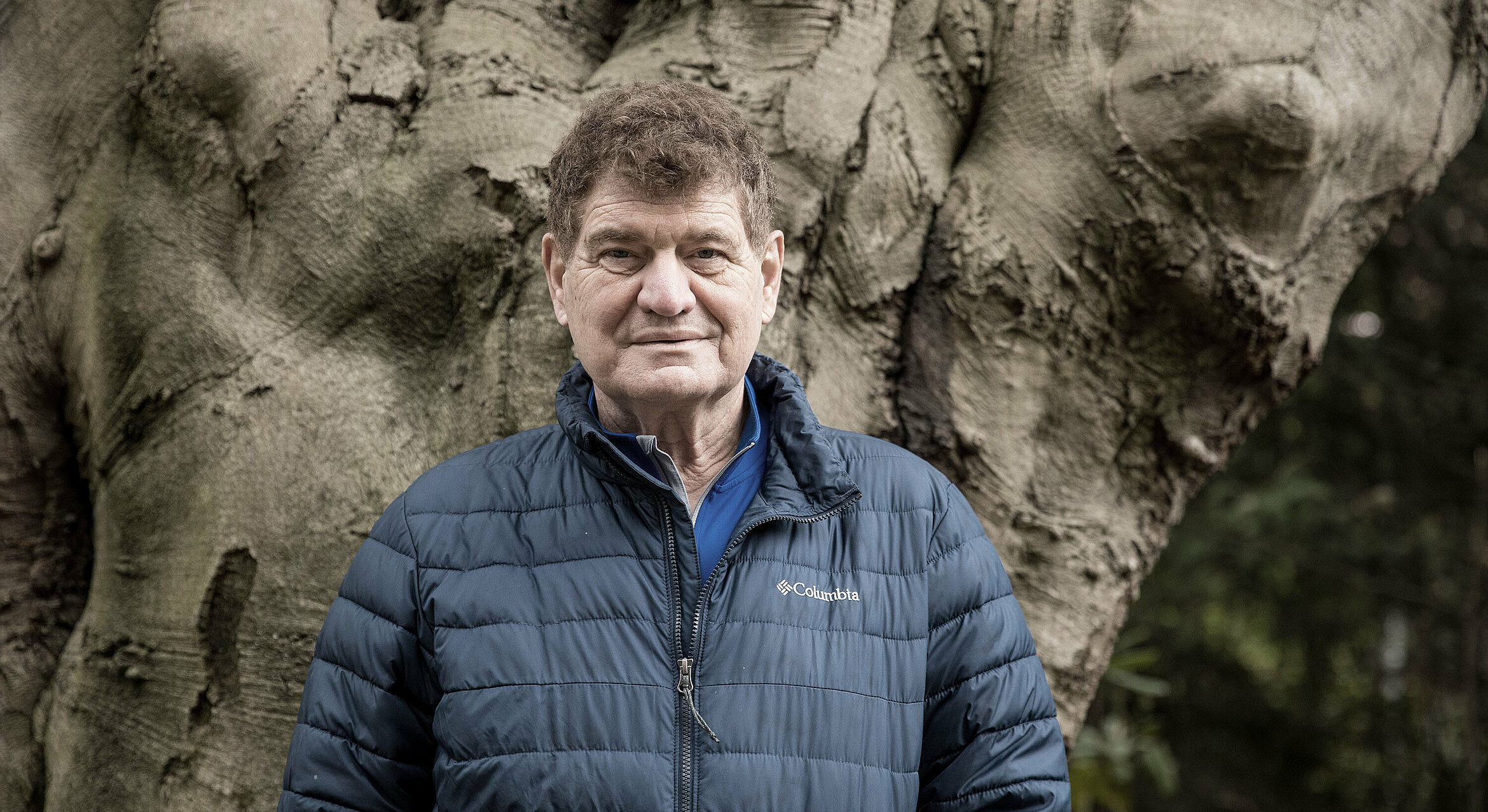
Arie Schwartz
For New Yorker Arie Schwartz, luck means always being given another chance. Since first being diagnosed in 1998, his prostate cancer has returned on three occasions. He found an opportunity to get a grip on the disease once and for all in Germany. More precisely, it was at the Martini-Klinik, where a unique procedure has made it possible to safely detect and remove new cancer lesions.
In the 24 hours before flying from New York to Hamburg, Dr Arie Schwartz brought six babies into the world. He is a gynaecologist at a large maternity hospital in New York and, despite approaching 71 years old, has no plans to retire. “Why should I? I love my job and I’ll keep going for as long as I’m able,” he says. Keeping going, bouncing back and remaining open to new options – this was also the approach that enabled Arie Schwartz to take the fight to his prostate cancer, time and again.
He first faced cancer back in 1998. Schwartz was 47 at the time. “It was a shock. I was in the middle of my life; our four children were still young and needed their father.” The physician pauses for a second, his bright eyes seeming anxious. “My urologist acted very quickly back then and sent me to the Columbia University Medical Centre, where they performed a radical prostatectomy and removed the entire prostate. After that, I had nine and a half years of peace.” Then, however, the disease returned.
Of setbacks and hope
At the age of 56, cancer began to play a macabre game of hide and seek with Arie Schwartz. Time and again, new lesions would appear. Operations and radiotherapy were unable to rein in his PSA level, which rises quickly in people with prostate cancer. Somewhere, the cancer was hiding. However, it was never identifiable on CT images. When the specialists in New York ran out of ideas, Schwartz was prescribed drug-based hormone therapy. “During that time, I lost 40% of my muscle mass; I felt run down and utterly powerless. I didn’t want to live that way.” Schwartz decided to stop the therapy and was lucky, as the cancer left him in peace for three years. It was a wonderful time for him. “I enjoyed my family, my children and my grandchildren to the fullest. Then, when the game of hide and seek started again, I swore that I would uncover the damn cancer.”
This declaration of war saw Arie Schwartz and his wife travel around the world. Their first stop, in 2017, was a clinic in Israel that offered PSMA PET scans, a method not available in the USA at the time. This diagnostic procedure from the field of nuclear medicine aims to identify hidden metastases following a recurrence. It involves using a special radioactive particle that binds to the PSMA protein, which is found on the surface of prostate cancer cells, so that the cancer lights up on a screen. The Israeli doctors made a find and discovered a lymph node in Schwartz’s pelvic region. However, neither they nor the doctors in the USA had the targeted techniques required to remove it.
We have only the utmost admiration for Dr. Tobias Maurer. In December 2017, my husband, Arie, a well known ob/gyn physician in New York and I, a healthcare consultant, travelled to Munich to have Arie undergo a PSMA-guided salvage lymph node dissection for recurrent prostate cancer. This procedure is unavailable in the United States but through research, we found an article by Dr. Maurer on this novel technology to detect lymph node metastases. From the moment we reached out to him, Dr. Maurer was professional, positive, and engaging. He was patient in explaining all the details and provided a tremendous level of comfort in his skilful ability to perform the surgery. His follow-up in the hospital and thereafter was par excellence. Most importantly, the surgery was a complete success and now Arie, who had been on treatment for years, is miraculously free of prostate cancer. We are indebted to Dr. Maurer and have since highly recommended him to others who have also benefited from his compassion and patient care.
Fran and Dr. Arie Schwartz
From New York to the Martini-Klinik in Hamburg
So, although they had finally located the cancer, there was no way to remove it? Arie Schwartz and his wife were simply not willing to accept that. They researched online for treatment options and came across an article by Prof. Tobias Maurer about the development of PSMA diagnostics as a potential treatment method. At the time, Prof. Maurer was a consultant at the Technical University of Munich’s Urology Clinic. He joined the Martini-Klinik leadership team in 2018.
Schwartz and his wife learned that PSMA-radioguided surgery, the technique co-developed by Prof. Maurer, could safely identify even tiny metastases. It involves injecting the patient with radioactive marker particles targeting the PSMA protein, which binds to individual prostate cancer cells, on the day before surgery. The following day, the surgeons scour the operating area with a gamma probe. If the probe starts to vibrate, it means that there are cancer cells beneath it – which can then be removed precisely in a minimally invasive procedure. “An ingenious system – highly precise and without the need to search for small tumour lesions in an open abdomen. To this day, I am thoroughly impressed by this surgical method and overjoyed that I had to opportunity to benefit from it,” says 71-year-old Schwartz.
Update: Four weeks after the surgery
Arie Schwartz is very well indeed. He is back working at the maternity hospital and treating his patients. His PSA level has now fallen below the detection limit (<0.01 ng/ml).

During the procedure, loud and rapid ticking indicates that the surgeon is approaching a lymph node containing cancer. The image above shows a removed tumour after surgery for illustrative purposes. This reading is very high – 136 “counts” per minute.